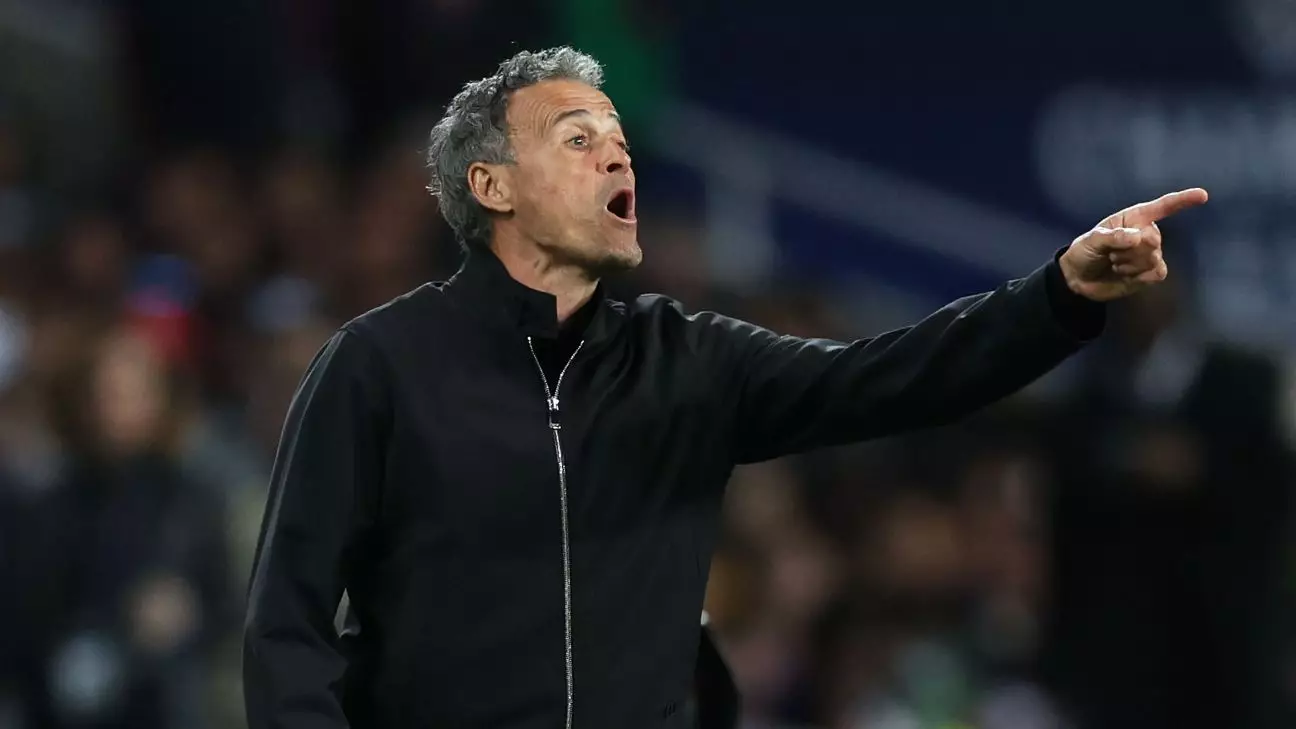In the world of football, tactical philosophies often come under scrutiny, especially when two heavyweights like Paris Saint-Germain (PSG) and Barcelona clash. Following their recent encounters in the Champions League quarterfinals, PSG’s coach Luis Enrique offered a critical view of Xavi Hernández’s Barcelona strategy. This juxtaposition highlights not only the tactical evolution of both clubs but also raises questions about the effectiveness of current footballing ideologies. Enrique’s comments provide a fascinating lens through which we can begin to understand the complexities and challenges faced by modern teams.
Luis Enrique’s assertion that Barcelona’s style resembles “long ball football like Eibar” signals a departure from the traditional tiki-taka approach that once defined the Catalan side. In his commentary, he emphasized that despite Xavi’s stewardship, the team struggled to maintain control and quality on the ball. This critique reveals a significant ideological shift in Barcelona’s play that points to wider trends in football tactics. Long ball strategies might yield results in some cases, but they often neglect the possession-based game that brought Barcelona acclaim under former managers.
Enrique’s disdain is not unfounded. By highlighting how goalkeeper Marc-André ter Stegen recorded a remarkable number of long passes, he highlights a concerning lack of creativity and fluidity in the Barcelona buildup play. This not only reflects how teams adapt to their personnel but also how tactical flexibility can sometimes lead to an identity crisis. For younger audiences, this shift may challenge preconceived notions about what defines Barcelona football.
Tactical Analysis: The Coach’s Perspective
Crucially, Enrique’s analysis does not only criticize Xavi but also serves as a reflection of his own tactical philosophy. Having led Barcelona to remarkable successes, including a treble in 2015, Enrique’s deep understanding of the game allows him to make pointed observations about Barcelona’s current struggles. His remarks on Barcelona’s defensive frailty offer an inviting opportunity for deeper analysis.
Defensive organization is the bedrock of any successful team. Enrique’s claim that Barcelona lacks quality in defense exposes a critical vulnerability that could be exploited by opponents. His perspectives force us to re-evaluate how teams can both thrive and falter based on the balance between attacking intent and defensive integrity.
Getting into the mind of a coach like Enrique provides aspiring football leaders with insightful lessons. His one-on-one discussions with star players like Kylian Mbappé underscore the importance of leadership on and off the field. The accountability he instilled in Mbappé reveals how a manager can shape team culture and performance.
Ultimately, the narrative surrounding PSG’s trajectory in the Champions League paints a complex picture. Despite Enrique’s brilliant tactical mind, PSG fell short against Borussia Dortmund in the semifinals, accentuating the unpredictability of knockout competitions. This outcome raises questions about whether individual talent can consistently outweigh systematic weaknesses.
In the documentary “You have no f—ing idea,” Luis Enrique not only reflects on tactical failures but also shares a personal dimension, notably with the loss of his daughter, which culminates in the formation of the Xana Foundation. This humanizes the coach and adds a profound emotional weight to his tenure. Leadership in football is not merely about tactical prowess but also the emotional intelligence to guide players through life’s challenges.
As we dissect Luis Enrique’s thoughts on Barcelona’s style under Xavi, we are left with broader implications for the evolution of football tactics. The transition from possession-based play to a reactive long ball strategy exemplifies the complexities of managing a football club within the rapidly changing landscape of the sport. More than ever, coaches must blend tactical acumen with emotional resilience to cultivate winning teams.
Football is a game of narratives, and as coaches like Enrique adapt and evolve, the story continues to unfold—paving the way for a new paradigm where tactical intelligence and human aspects intertwine seamlessly. As fans, we are fortunate to witness these developments and understand the layers of strategy and emotion that define modern football.

